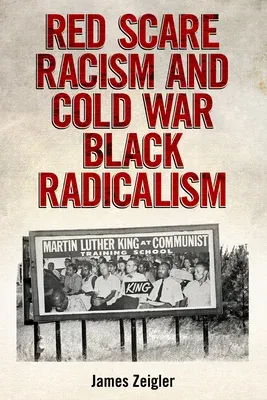During the early years of the Cold War, racial segregation in the
American South became an embarrassing liability to the international
reputation of the United States. For America to present itself as a
model of democracy in contrast to the Soviet Union's totalitarianism,
Jim Crow needed to end. While the discourse of anticommunism added the
leverage of national security to the moral claims of the civil rights
movement, the proliferation of Red Scare rhetoric also imposed limits on
the socioeconomic changes necessary for real equality.
Describing the ways anticommunism impaired the struggle for civil
rights, James Zeigler reconstructs how Red Scare rhetoric during the
Cold War assisted the black freedom struggle's demands for equal rights
but labeled "un-American" calls for reparations. To track the power of
this volatile discourse, Zeigler investigates how radical black artists
and intellectuals managed to answer anticommunism with critiques of Cold
War culture. Stubbornly addressed to an American public schooled in Red
Scare hyperbole, black radicalism insisted that antiracist politics
require a leftist critique of capitalism.
Zeigler examines publicity campaigns against Dr. Martin Luther King
Jr.'s alleged Communist Party loyalties and the import of the Cold War
in his oratory. He documents a Central Intelligence Agency-sponsored
anthology of ex-Communist testimonials. He takes on the protest essays
of Richard Wright and C. L. R. James, as well as Frank Marshall Davis's
leftist journalism. The uncanny return of Red Scare invective in
reaction to President Obama's election further substantiates
anticommunism's lasting rhetorical power as Zeigler discusses conspiracy
theories that claim Davis groomed President Obama to become a secret
Communist. Long after playing a role in the demise of Jim Crow, the Cold
War Red Scare still contributes to the persistence of racism in America.


